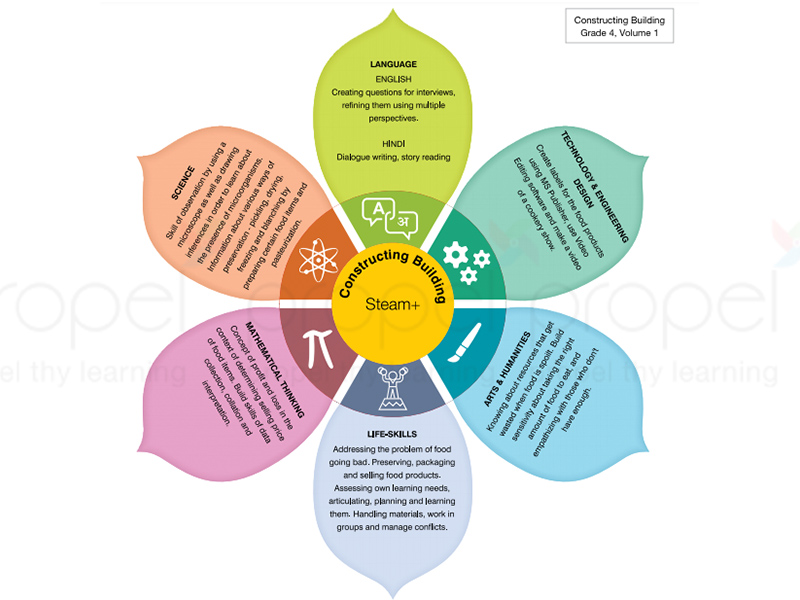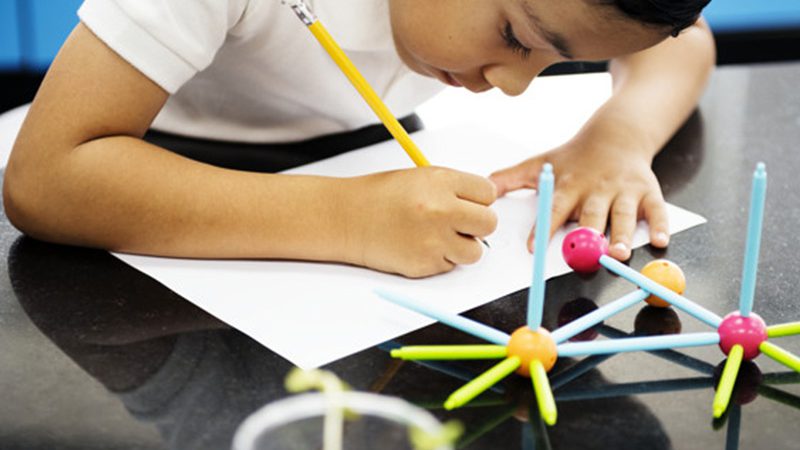PROJECT BASED LEARNING (PBL)
PROPELLING MULTI-DISCIPLINARY INTEGRATION
Project Based Learning integrates various disciplines that the child has to learn in a particular grade and weaves into powerful, challenging and immensely engaging modules.
Based on the powerful Experiential Learning Theory, PBL is a game changer in students learning and teachers’ teaching- it transforms the culture of learning, making it experiential, child centric and authentic, generates understanding and the skills of application as the children engage in real life experiences.
Each project integrates the STEAM subjects (Science, Technology, Engineering, Arts, Mathematics) plus Languages and Life-skills. In order to make learning meaningful, experiential and naturally integrated, the PBL Modules are woven around themes that naturally exist in child’s environment. The familiarity helps children connect with the modules and engages them effortlessly.
1. Theory: PBL is based on the Human Constructivism Theory which proposes the learning that addresses the whole being – physical, emotional and cognitive development of the child. Within this, the social and language developments happen.
2. Content Integration: PBL module is carefully woven around a theme, using curricular needs of children at different levels, suited to their developing cognitive, affective and psycho-motor needs. PBL modules integrate STEAM subjects plus languages and life – skills. The content of these subjects are taken from the syllabi that are mandated by National Curriculum Framework for the child’s grade and is part of NEP2020.
3. Methodology: The modules are designed connecting every step to create a flow in children’s engagement. The methodology follows six step of experiential learning – and includes application, practice and assessment which are core to attaining mastery in the skills children are learning.
4. Structure: PBL Modules include visually designed content cum workbooks for children, manipulatives for experimentation and explorations, and Assessment tools. The teacher support is provided through training labs, implementation maps (lesson plans) and regular follow up and personal coaching.
While grade 3 has 4 PBL modules which are small and run for 2-3 months each, grades 4 onwards there are 2 PBL modules for the year.
5. Implementation: The implementation process starts with capacitating teachers with the skills and pedagogical content knowledge for PBL modules and its structure. Each PBL modules ends with culmination where children present their entire PBL journey and their learning to the school and parents. Schools also invites other stake-holders to witness the transformation in learning that PBL makes possible, visible through children’s work.
Content inclusion of STEAM plus subjects of one sample PBL modules for grade 4 on Constructing Building
It is important to mention that each STEAM plus knowledge and skills included in the PBL modules are taken from the syllabus of the pertaining grade, to ensure that every module caters to the curricular needs of children.




